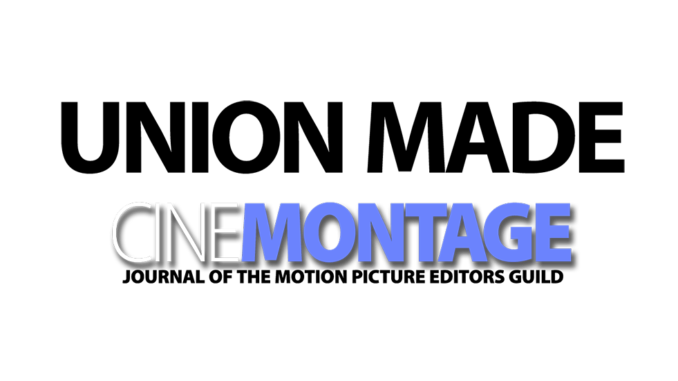by Mitch Danton
I was born in Burbank and grew up in the Hollywood Hills. My parents were both successful actors (Ray Danton and Julie Adams) who worked for the major studios, and I had a pretty easy life until they got divorced in the early 1970s. Suddenly, money was tight as both struggled to set up separate households. My father began directing low-budget films and had custody of me on weekends, so that was our time together. One Saturday, he was posting a horror film he had directed and brought me along with him for a day of editing.
I vividly remember stepping inside that film editing room. I was 11 years old. The film was called Psychic Killer(1975), and the editor was Michael Brown, ACE. It was a magical experience observing Brown build a sequence shot by shot and then running it at the end of the day on a Moviola.
Inspired, I dreamed of becoming a film editor myself after that, and fell in love with the idea of telling stories with film. I have never liked crowds or noisy places, and a quiet editing room seemed like an ideal place to make a living someday.
In the late ‘70s, I spent a lot of time with my dad on the set and in post. I gradually shied away from the chaos of production and was increasingly fascinated by editing. Many of the editors I met asked me why I didn’t want to become a director like my dad. To me, editing was far more interesting than directing — and you didn’t need a small army of people to do it.
In high school, I wasn’t much of a student and didn’t want to go to college. When I was 18, my dad introduced me to a producer who hired me as a non-union apprentice editor at a small film company in Burbank. There I learned how to sync dailies, thread a Kem and cut sound effects. It was a great experience but, after six months, it ended and I was out of work for quite a while.
To me, editing was far more interesting than directing —and you didn’t need a small army of people to do it.
Then something amazing happened when my father directed an episode of Cagney & Lacey (1981-88) and introduced me to the editor, Geoffrey Rowland, ACE. We hit it off right away. I spent many hours hanging film trims for him while he composed his symphony of images and dialogue. We had a lot of fun and I gained insight into editing by observing his creative process.
I also learned that if you hang around long enough helping out, sooner or later you will land a job — and that’s exactly what happened on Cagney & Lacey! The next season I was hired as the post-production assistant. I ran errands all over Los Angeles and did whatever I could to become a valuable member of the post team, including familiarizing myself with all the stock footage, so that whenever an editor needed a shot, I knew where to find it.
When it came time to hire an apprentice editor to help manage the film library, I was the ideal candidate. Executive producer Barney Rosenzweig helped make it happen. It took a year of trying before the IATSE union roster was down to just a few available apprentices, and I got hired. Delighted, I joined the Editors Guild in 1984.
Soon, I was promoted to assistant editor on Cagney & Lacey. Though I enjoyed my job, I felt that I had missed out on something by going to work right out of high school: the college experience. So I applied to USC and by some miracle, was accepted. I put my career on hold for four years to get an education.
My background in editorial helped me immensely in film school when I shot and edited my own projects. While at USC, I gained a deeper understanding of the film language, and felt more confident in my editing abilities when I graduated with a degree in Cinema/Television in 1990.
As luck would have it, Rosenzweig had another show at that time called The Trials of Rosie O’Neill(1990-92).I was hired as an assistant editor and had the privilege to work for David Handman, ACE. He allowed me to practice cutting a lot and always let Rosenzweig know which scenes I had worked on.
This paid off on Rosenzweig’s next series, Christy(1994-95). Rosenzweig remembered my hard work and dedication over the years, and when an editing position opened up, he took a chance and gave me the job. I worked hard to keep that job. It went well and others soon followed. My editing career took flight and has now spanned about 20 years.
I am thankful to Barney Rosenzweig for giving me an opportunity to become an editor. I’m also forever grateful to those who mentored me, especially my dad. I hope to give back by helping up-and-comers, so that they have a chance to fulfill their film editing dreams too.


